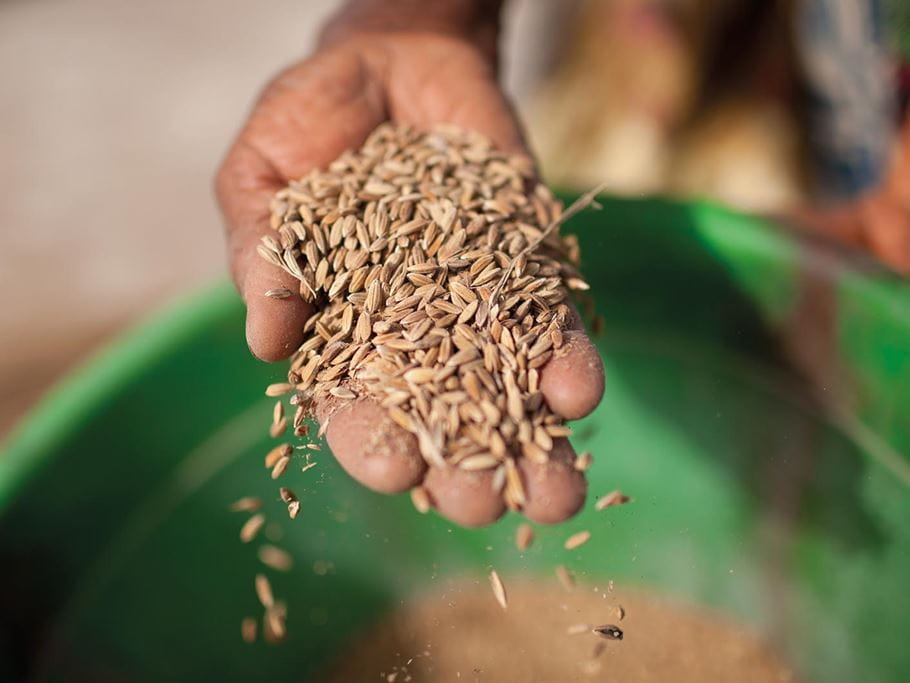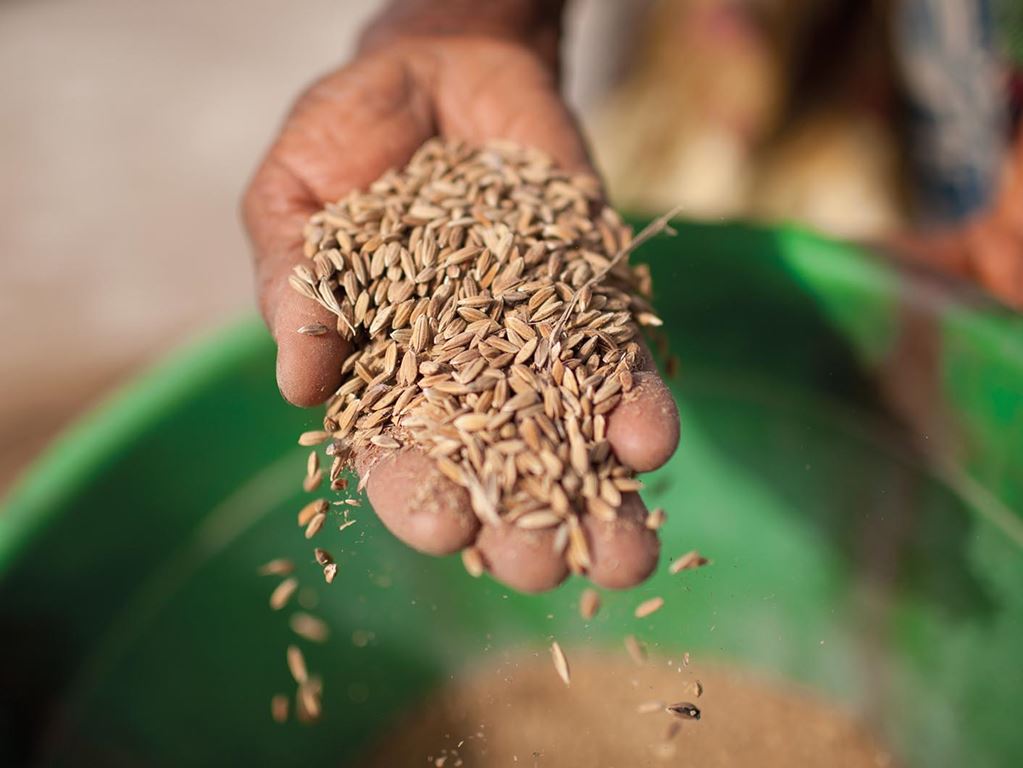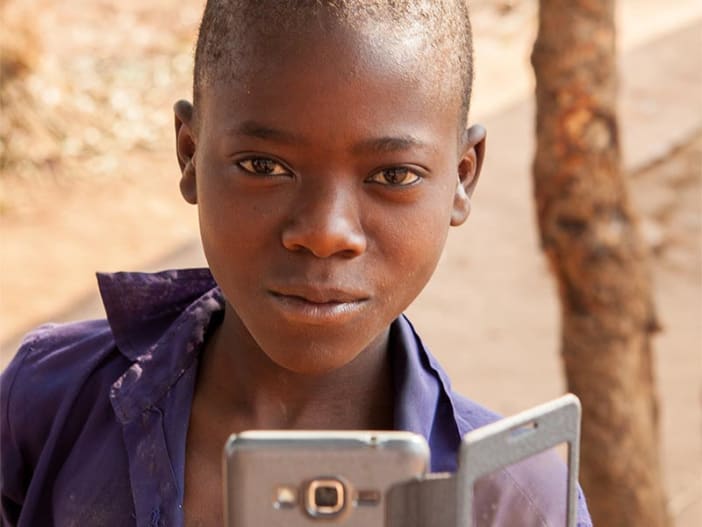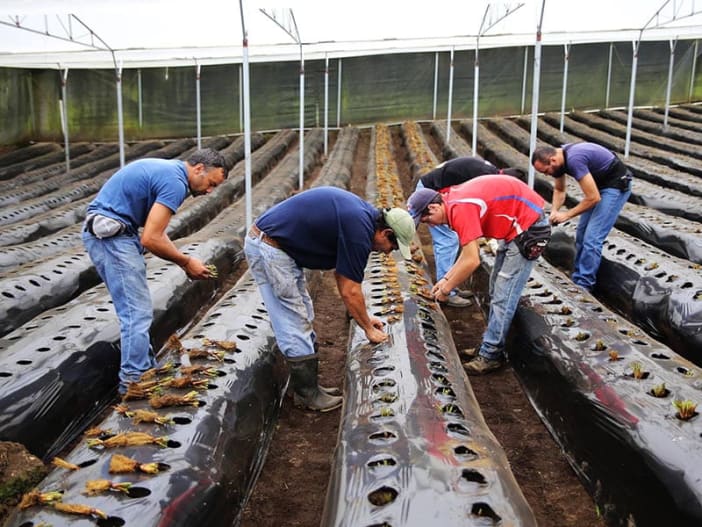Buhfai tham (‘handful of rice’) was started in the state of Mizoram in north-east India in 1910. It is a practice where each family, mainly from the Mizo ethnic group, puts aside a handful of rice every time they cook a meal. Later, they gather it and offer it to the church. The church in turn sells the rice and generates income to support its work.

Articles
Handful of rice
If everyone gives a little each day, much can be achieved
2020 Available in English, French, Portuguese and Spanish

From: Local fundraising – Footsteps 111
Discovering the joy of inviting people to invest in our work and ministries


If everyone gives a little each day, great things can be achieved. Photo: Ralph Hodgson/Tearfund
Over time, the amount of rice given has increased and people have also started to give other things including firewood, vegetables and other produce. As a result, the churches in Mizoram are now self-sufficient.
One of the church leaders says, ‘We do not receive any outside funding. All the money that we have is raised by ourselves. Mizoram State is not wealthy, but still, we can raise funds for the ministry of the Lord. We can now support 1,800 church leaders.'
‘We Mizo people say, “As long as we have something to eat every day, we have something to give to God every day.”’
Inspiration in Cote d’Ivoire
Edmond is a pastor in the village of Nassian in Côte d’Ivoire. When he arrived, the village had a small congregation and the church building was falling down.
Edmond felt it was important to rebuild the church, but the area is poor and the cost was clearly too much for his congregation. However, during his training he had learnt that great things can be achieved with just a ‘handful of rice’, so he started talking about building the church ‘one kilo of cement at a time’.
The main agricultural crop in the area is cashew and most people have several trees. The church members came up with the idea of writing 1, 2 or 3 on different pieces of paper, corresponding to 1, 2 or 3 cashew trees. The pieces of paper were folded up and put into a box. Each church member took out a piece of paper and agreed to give the cashews from the number of trees indicated. The cashews were then sold to buy the materials needed to build the church and fund the church’s ministries.
One farmer, Illio, pulled out the number 3, but when harvest came he announced that he was giving the cashew nuts from 21 trees instead! Illio did the same the following year and also gave Edmond some land to plant his own trees on, as a newcomer to the village.
The church building is now complete, plus two extra rooms for literacy classes and other activities. The church members have started some agriculture trial plots to try and improve yields. The young people are working together in different ways to serve their community. All this activity has prompted people from other villages to come and see what is happening and to ask advice on how to bring change to their own communities.
Edmond says, ‘We can carry out these activities in our churches by looking at the abilities and resources that are available, and making it possible for each person to participate.’
For more information about Buhfai Tham, have a look at this video
View or download this resource
Get this resource
Get this resource
Similarly Tagged Content
Share this resource
If you found this resource useful, please share it with others so they can benefit too.

Subscribe to Footsteps magazine
A free digital and print magazine for community development workers. Covering a diverse range of topics, it is published three times a year.
Sign up now - Subscribe to Footsteps magazine





